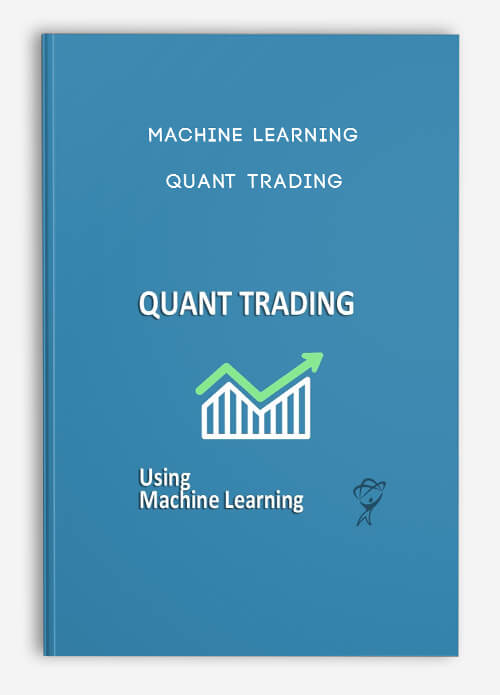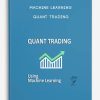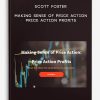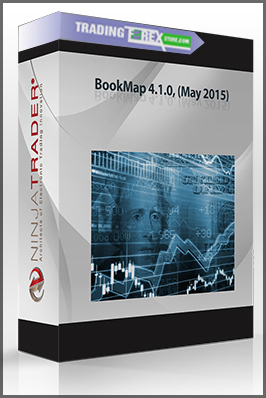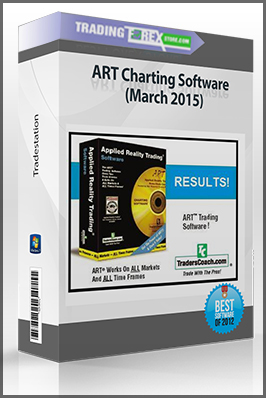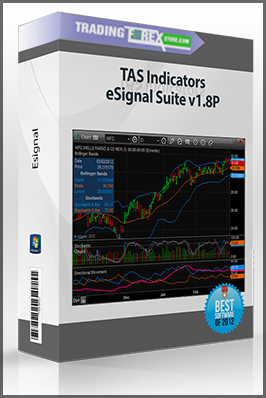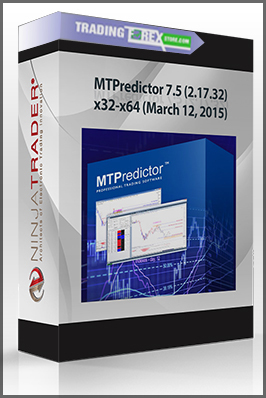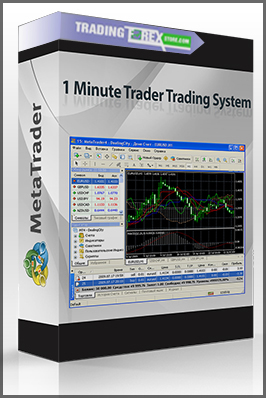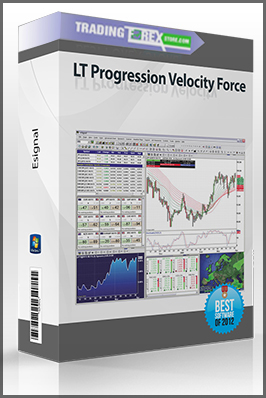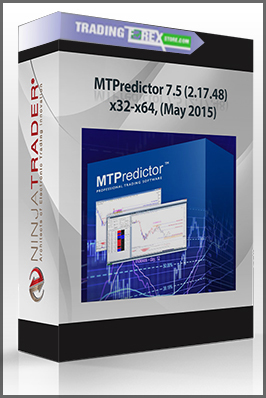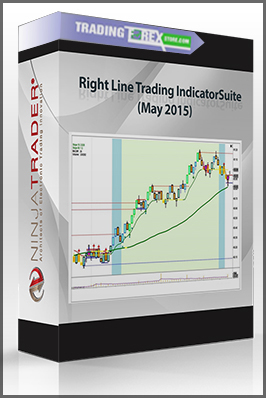Machine Learning – Quant Trading
Original price was: $399.00.$59.00Current price is: $59.00.
Product Include:
File size:
- Description
Description
Machine Learning – Quant Trading
**More information:
Get Machine Learning – Quant Trading at bestoftrader.com
Description
Play the Markets Like a Pro by Integrating Machine Learning into Your Investment Strategies! This online training course takes a completely practical approach to applying Machine Learning techniques to Quant Trading. The focus is on practically applying Machine Learning techniques to develop sophisticated Quant Trading models. From setting up your own historical price database in MySQL, to writing hundreds of lines of Python code, the focus is on doing from the get-go.
Financial markets are fickle beasts that can be extremely difficult to navigate for the average investor. This Quant Trading Using Machine Learning course will introduce you to machine learning, a field of study that gives computers the ability to learn without being explicitly programmed, while teaching you how to apply these techniques to quantitative trading. Using Python libraries, you will discover how to build sophisticated financial models that will better inform your investing decisions. Supplemental Material included!
Table of Contents
- INTRODUCTION
- You, This Course, and Us! 00:02:01
- DEVELOPING TRADING STRATEGIES IN EXCEL
- Are markets efficient or inefficient? 00:10:27
- Momentum Investing 00:11:31
- Mean Reversion 00:06:30
- Evaluating Trading Strategies – Risk and Return 00:16:22
- Evaluating Trading Strategies – The Sharpe Ratio 00:10:16
- The 2 Step process – Modeling and Backtesting 00:03:49
- Developing a Trading Strategy in Excel 00:11:42
- SETTING UP YOUR DEVELOPMENT ENVIRONMENT
- Installing Anaconda for Python 00:09:00
- Installing Pycharm – a Python IDE 00:03:55
- MySQL Introduced and Installed – Mac OS X 00:07:04
- MySQL Server Configuration and MySQL Workbench – Mac OS X 00:17:32
- MySQL Installation – Windows 00:06:32
- For Linux-Mac OS Shell Newbies – Path and Other Environment Variables 00:08:26
- SETTING UP A PRICE DATABASE
- Programmatically Downloading Historical Price Data 00:06:24
- Code Along – Downloading Price Data from Yahoo Finance 00:14:40
- Code Along – Downloading a URL in Python 00:07:39
- Code Along – Downloading Price Data from the NSE 00:13:55
- Code Along – Unzip and Process the Downloaded Files 00:05:22
- Manually download data for 10 years 00:01:00
- Code Along – Download Historical Data for 10 years 00:06:26
- Inserting the Downloaded Files into a Database 00:10:11
- Code Along – Bulk Loading Downloaded Files into MySQL Tables 00:15:13
- Data Preparation 00:04:16
- Code Along – Data Preparation 00:12:43
- Adjusting for Corporate Actions 00:08:41
- Code Along – Adjusting for Corporate Actions 1 00:15:29
- Code Along – Adjusting for Corporate Actions 2 00:08:47
- Code Along – Inserting Index Prices into MySQL 00:05:41
- Code Along – Constructing a Calendar Features Table in MySQL 00:06:54
- DECISION TREES, ENSEMBLE LEARNING AND RANDOM FORESTS
- Planting the seed – What are Decision Trees 00:17:02
- Growing the Tree – Decision Tree Learning 00:18:04
- Branching out – Information Gain 00:18:51
- Decision Tree Algorithms 00:07:51
- Overfitting – The Bane of Machine Learning 00:19:04
- Overfitting Continued 00:11:20
- Cross-Validation 00:18:55
- Regularization 00:07:18
- The Wisdom of Crowds – Ensemble Learning 00:16:39
- Ensemble Learning continued – Bagging, Boosting and Stacking 00:18:03
- Random Forests – Much More Than Trees 00:12:28
- A TRADING STRATEGY AS MACHINE LEARNING CLASSIFICATION
- Defining the Problem – Machine Learning Classification 00:15:51
- FEATURE ENGINEERING
- Know the basics – A Pandas tutorial 00:11:42
- Code Along – Fetching Data from MySQL 00:18:35
- Code Along – Constructing Some Simple Features 00:07:28
- Code Along – Constructing a Momentum Feature 00:08:42
- Code Along – Constructing a Jump Feature 00:05:52
- Code Along – Assigning Labels 00:03:13
- Code Along – Putting It All Together 00:18:08
- Code Along – Include Support Features from Other Tickers 00:06:34
- ENGINEERING A COMPLEX FEATURE – A CATEGORICAL VARIABLE WITH PAST TRENDS
- Engineering a Categorical Variable 00:03:49
- Code Along – Engineering a Categorical Variable 00:06:47
- BUILDING A MACHINE LEARNING CLASSIFIER IN PYTHON
- Introducing Scikit-Learn 00:03:33
- Introducing RandomForestClassifier 00:09:26
- Training and Testing a Machine Learning Classifier 00:15:01
- Compare Results from Different Strategies 00:05:45
- Using Class Probabilities for Predictions 00:03:11
- NEAREST NEIGHBORS CLASSIFIER
- A Nearest Neighbors Classifier 00:06:50
- Code Along – A Nearest Neighbors Classifier 00:04:16
- GRADIENT BOOSTED TREES
- What are Gradient Boosted Trees 00:12:38
- Introducing XGBoost – A Python Library for GBT 00:11:51
- Code Along – Parameter Tuning for Gradient Boosted Classifiers 00:09:21
- INTRODUCTION TO QUANT TRADING
- Financial Markets – Who Are the Players 00:16:38
- What is a Stock Market Index 00:03:14
- The Mechanics of Trading – Long Vs Short Positions 00:11:56
- Futures Contracts 00:14:26
Forex Trading – Foreign Exchange Course
Want to learn about Forex?
Foreign exchange, or forex, is the conversion of one country’s currency into another.
In a free economy, a country’s currency is valued according to the laws of supply and demand.
In other words, a currency’s value can be pegged to another country’s currency, such as the U.S. dollar, or even to a basket of currencies.
A country’s currency value may also be set by the country’s government.
However, most countries float their currencies freely against those of other countries, which keeps them in constant fluctuation.

